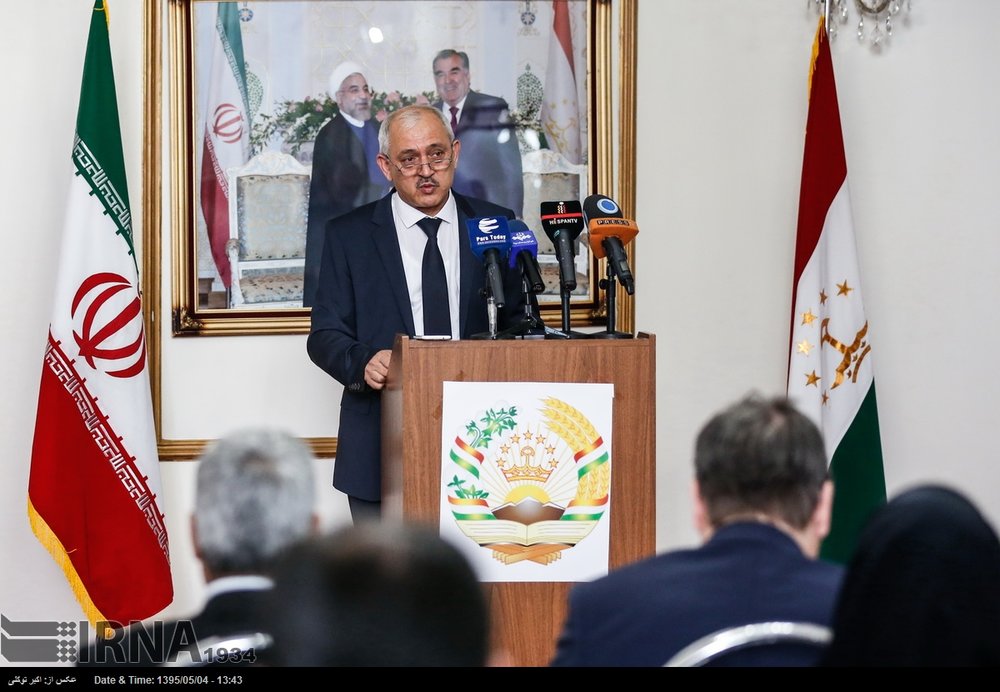Tajikistan, UN-DESA co-organize symposium on sustainable water management

TEHRAN — The government of Tajikistan and the United Nations Department of Economic and Social Affairs (UN-DESA) have co-organized a high-level symposium on sustainable management of water, which is scheduled to be held in Dushanbe on August 9.
The Tajik ambassador to Iran Nematullo Emomzoda made the announcement over a press conference held in the Embassy of the Republic of Tajikistan here on Monday.
In adopting the 2030 Agenda for sustainable development, member states highlighted the vital importance of water and sanitation. They incorporated a standalone sustainable development goal on water (SDG 6) which ensures availability and sustainable management of water and sanitation for all as part of the foundation of sustainable development.
The high profile three-day symposium will be discussing SDG 6 and its targets ensuring that no one is left behind in access to water and sanitation, Emomzoda said.
So far more than 75 countries have expressed readiness to take part in the event and some 300 experts in water-related fields will attend the symposium, the Tajik ambassador noted.
One Iranian water research center will also take part in the symposium as well, he noted.
The Symposium will undertake an evidence-based assessment of recent country experiences in advancing integrated water resource management, by sharing lessons learned and good practices in improving access to water, sanitation and hygiene, in increasing water use efficiency, reducing water pollution, protection of water basins and ecosystems and advancing international cooperation and partnerships.
It offers a platform for government officials, water policy makers and experts, businesses and civil society representatives to discuss how to implement SDG 6 and its related targets, including through an international decade of water for sustainable development, currently under consultation initiated by Tajikistan.
Achieving universal and equitable access to safe and affordable drinking water for all; substantially increasing of water-use efficiency across all sectors; expanding international cooperation and capacity-building support to developing countries in water- and sanitation-related activities and programs, including water harvesting, desalination, water efficiency, wastewater treatment, recycling and reuse technologies; and supporting and strengthening the participation of local communities in improving water and sanitation management are of the targets adopted by the member states to be implemented by 2020.
MQ/MG
